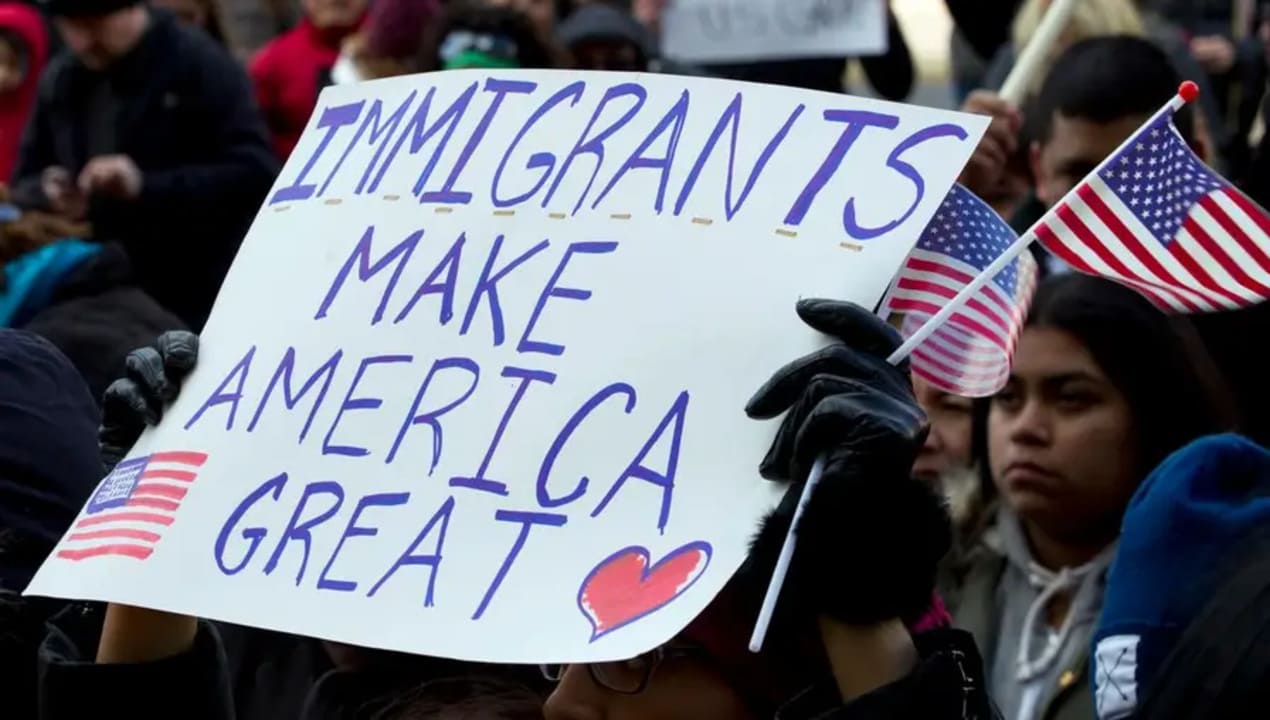
Independent Report – The U.S. government has implemented a policy pause, temporarily halting its effort to prevent immigrants living in the country without legal status from accessing certain federally funded social services. This pause comes after a group of 20 Democratic-led states filed lawsuits challenging the administration’s new policy changes.
On Friday, the Departments of Justice, Health and Human Services, Education, and Labor agreed to delay enforcement of the new rules until at least September 3 as part of the policy pause. These rules would have required states to verify the immigration status of individuals before allowing them to receive benefits from programs such as early childhood education, food assistance, and healthcare services.
The agreement also includes a commitment from the federal agencies not to apply these changes retroactively in states that have already filed lawsuits. These states include New York, California, Illinois, and others. The lawsuit was filed in a federal court in Rhode Island, where the affected states sought to block the implementation of the new requirements.
New York Attorney General Letitia James expressed support for the agreement. Stating that it helps protect vital social services that millions of residents depend on for survival. She emphasized that the policy changes threatened critical assistance programs that provide healthcare, education. And also nutrition support to hardworking families, not only in New York but across the country. James also promised that her office would continue to fight for these essential services to remain available to those who need them.
More than 20 Democratic attorneys general had taken legal action earlier in the week. They argued that the new policies, which stem from an immigration-focused executive order by President Donald Trump, are unconstitutional. The attorneys general also claimed that the president bypassed the required federal rulemaking process when issuing these directives.
Baca Juga : Hulk Hogan: Wrestling Legend and Cultural Icon Passes Away
The policy changes require social service programs to verify the immigration status of applicants before providing benefits. Programs affected include Head Start, Meals on Wheels, child welfare services, domestic violence shelters, housing assistance, mental health treatment, food banks, and community health centers. The states warned that these rules risked cutting off federal funding and could force many programs to shut down entirely.
According to the states, the new requirements went into effect almost immediately after the directives were announced. This sudden enforcement caused confusion and scrambling among service providers. Who had to quickly adjust their operations to comply with the new rules in order to continue serving the community.
Traditionally, states have been required to verify immigration status before granting access to certain federal programs, such as Medicaid. However, federal agencies have previously taken the position that some programs—like soup kitchens, homeless shelters. And also crisis counseling centers—did not have to verify immigration status. These programs are federally funded but intended to be accessible to all individuals, regardless of immigration status, according to the lawsuit.
The lawsuit argues that the administration’s new policies threaten to undermine this long-standing practice. By forcing social service programs to conduct immigration checks, the changes could create barriers for vulnerable populations seeking help. This could lead to decreased access to essential support for those facing hardship.
Opponents of the policy also highlight concerns that the new requirements could discourage immigrants from using available services due to fear of exposure or deportation. Such fears might increase hardship for already struggling individuals and families, potentially leading to worse health and social outcomes.
The legal challenge aims to protect the availability and accessibility of social services for all residents, regardless of their immigration status. The Democratic-led states are pressing for a ruling that would block the administration from enforcing the new immigration verification requirements.
By agreeing to delay enforcement, the federal agencies have given the states more time to pursue their legal arguments in court. The pause allows programs affected by the policy changes to continue operating without the immediate burden of compliance.
This development reflects ongoing tension between federal immigration policies and state efforts to maintain social safety nets. The outcome of the lawsuit could have significant implications for how social services are administered across the country. Especially in states with large immigrant populations.
For now, immigrant communities in the affected states can continue to access key programs like healthcare, education. And also nutrition assistance without the added barrier of immigration status checks. The case remains active, with legal proceedings expected to continue before any final resolution is reached.
Simak Juga : Shocking Facts About the Thailand-Cambodia Conflict: Over 100,000 Displaced